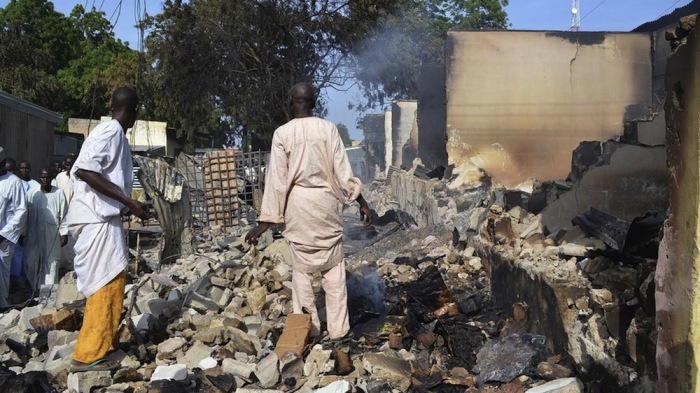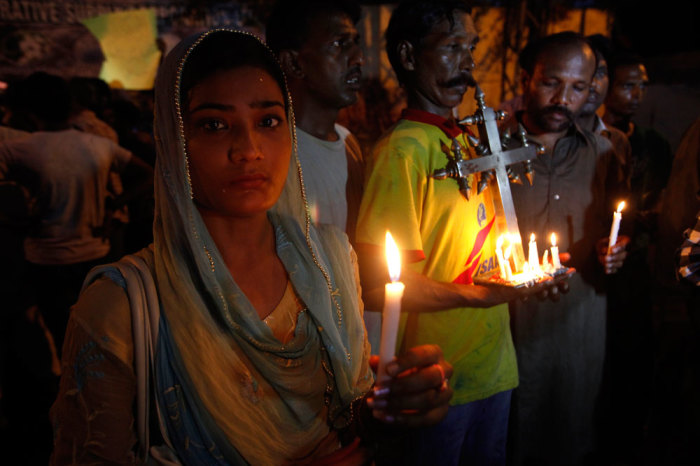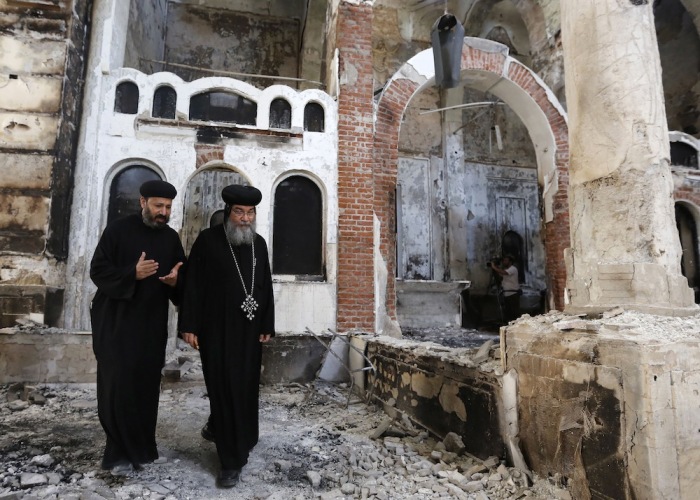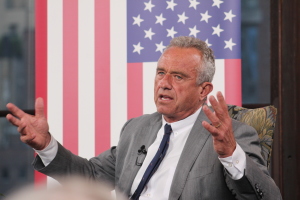It Was Terrifying Being a Christian in 2013 - CP Lists Just a Handful of the Most Horrific Persecution Stories of the Year
"So many Christians in the world are suffering. Am I indifferent to that, or does it affect me like it's a member of the family? Does it touch my heart, or doesn't it really affect me, [to know that] so many brothers and sisters in the family are giving their lives for Jesus Christ?" - Pope Francis, September, 23, 2013.
Despite the fact that Christians make up roughly a third of the world's population, there are still large pockets of the planet where they are targeted and hunted down simply because of their faith in Jesus Christ.
Below are just six among hundreds of stories of persecution from the bloody, painful and tumultuous year of 2013 for Christians around the globe.

1. Nigeria's Boko Haram and Fulani Herdsmen Slaughter 1,200 Nigerian Christians
"Statistically, we are looking at approximately 60 percent of the world's Christians that were killed for their faith last year was in Northern Nigeria," Ann Buwalda, executive director of the Jubilee Campaign.
Recently named on the U.S. terrorist's list, Boko Haram has waged war against Nigerian Christians living in the northern part of the country in hopes of driving them to the South, where the majority of Christians already reside. (The country's Muslims live predominantly in the North.) To achieve its ends, the group, along with Fulani Herdsmen, have carried out bombings, mass shootings and kidnappings, leaving Christians fearful for their lives. The Nigerian government had attempted to grant the group amnesty in April, in hopes of them ceasing their fight, but the group rejected the offer. Still, in one hopeful sign, some church leaders suggested in November that the sophisticated guerilla operation now operates more as a "bandit gang."

2. Pakistan's Largest Attack on Christians Claims 82 Lives
"In every family, one or two people were killed, so how can we celebrate Christmas? There will be no happiness," Nasreen Anwar, 35, on the blast that killed her 14-year-old daughter in the blast and severely wounded her nine-year-old daughter, to the AFP.
Eighty-two people died after a double suicide bomb exploded immediately after a church service let out at All Saints Church in Peshawar on September 22. Within the tiny community, almost no family was untouched by the attack, which was timed and strategized for maximum carnage -- metal ball bearings were packed into the bombs.
The attack highlighted the peril of Pakistani Christians, who make up 1.6 percent of the country's 179 million population. Beyond bombings, Christians have also been victim to "blasphemy laws," or legislation that enables Muslims antagonistic to Christians to accuse and prosecute them -- at times on flimsy grounds -- of smearing their faith.

3. Islamists Torch, Destroy and Vandalize over 70 Christian Churches and Institutions
"For weeks, everyone could see these attacks coming, with Muslim Brotherhood members accusing Coptic Christians of a role in Mohammad Morsy's ouster, but the authorities did little or nothing to prevent them," Joe Stork, acting Middle East director at Human Rights Watch, remarked back in August after Islamists wrecked havoc on their Christian countrypeople.
The year 2013 means something noteworthy to every Egyptian. The military overthrew the democratically elected Muslim Brotherhood-backed President Mohammed Morsi in June, but Christians will mark this year much more grimly. They will count the number of churches attacked (79 in August alone), a drive-by shooting at a Copt wedding in Cairo in October that killed four, and a several-month-long Islamist seize of Dalga, where the Christians that did not flee the takeover, found themselves essentially under house arrest and according to some reports, forced to pay a jizya or overseer tax to the Islamist government.
Ten percent of Egypt's population who been part of the country for hundreds of years despite years of persecution, the Christian community is resilient and yet rightfully concerned about where they will fit in in a post-Mubarak state.




























